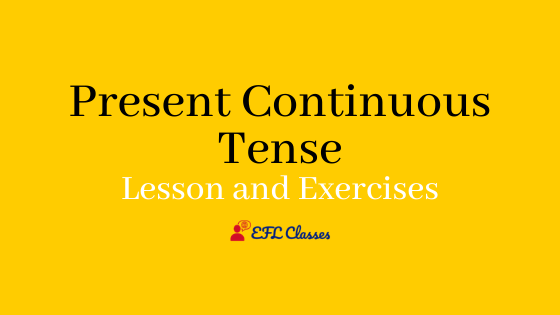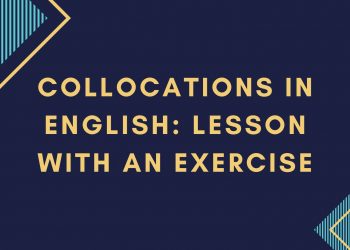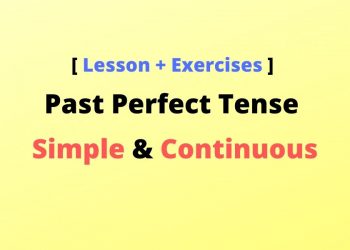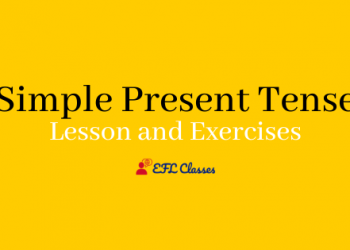Table of Contents
Form of the present progressive tense (continuous tense)
The present progressive tense is formed with:
The present tense of the auxiliary ‘be’ + verb + ing.
Note: not all verbs can be used in this form. We will come to this point later in this lesson.
|
Affirmative |
Negative |
Interrogative |
|
I am driving You are driving He is working She is writing It is working We are playing You are playing They are playing
|
I am not playing You are not playing He is not playing She is not playing It is not playing We are not playing You are not playing They are not playing |
Am I joking? Are you joking? Is he joking? Is she joking? Is it working? Are we going out? Are you going out? Are they playing? |
Uses of the present continuous tense
For an action happening now
- – It is snowing outside.
- – I am not wearing a coat as it is not cold.
- – Why are you sitting at my desk?
- – What’s the baby doing? – He’s tearing up a £5 note.
For an action happening about this time but not necessarily at the moment of speaking
- – I am reading a book by Russell Brunson. (not necessarily at the moment of speaking about the action)
- – He is teaching English and learning Spanish.
For a definite arrangement/action in the near future (expressing one’s immediate plans)
- – I am meeting my friends tonight at the café. We are going together to the cinema.
- – Are you doing anything tomorrow morning? – I’m going shopping with Ann.
Verbs not normally used in the present continuous tenses
Verbs of the senses (involuntary actions)
Feel, hear, see, smell
Verbs expressing emotions and feelings
Admire, adore, appreciate, desire, detest, dislike, fear, hate, like, loathe, love, mind, respect, value, want, wish
Verbs of mental activity
Agree, appreciate, assume, believe, expect, feel, feel sure, forget, know, mean, perceive, realize, recall, recognize, recollect, remember, see, suppose, think, understand, appreciate
Verbs of possession
Belong, owe, own, possess
Exercise: Put the verbs in brackets into the present continuous tense
- 1. She (not / work)……………., she (swim) in the river…………….
- 2. He (teach) …………….his boy to ride.
- 3. Why …………….Ann…………….(not/wear) her new dress?
- 4. The airplane (fly) …………….at 2000 meters.
- 5. What …………….Tom…………….(do) now?
- 6. He (clean) …………….his shoes.
- 7. Mrs. Jones (sweep) …………….the steps outside her house.
- 8. She always (ring) …………….up and (ask) …………….questions.
- 9. This fire (go) …………….out. …………….somebody (bring) …………….more coal?
- He (lie) …………….under the car.








![ESL Worksheets and Activities for Kids [PDF Book]](https://eflclasses.com/wp-content/uploads/2019/12/ESL-Worksheets-and-Activities-for-Kids-PDF-Book-120x86.jpg)


